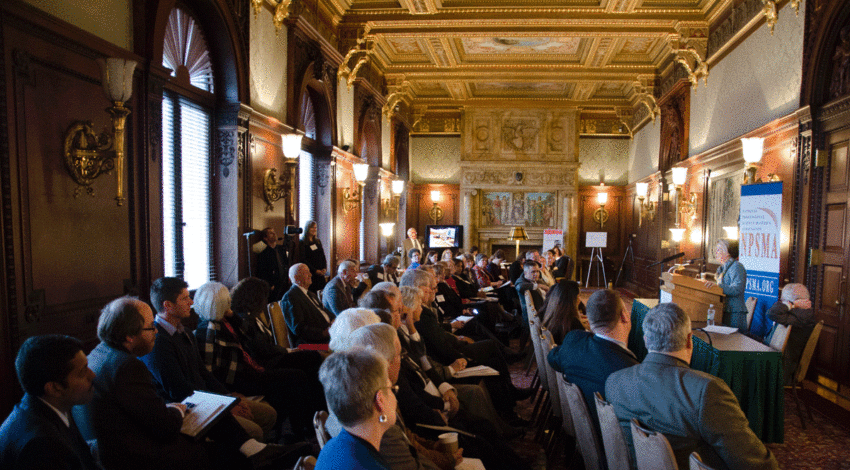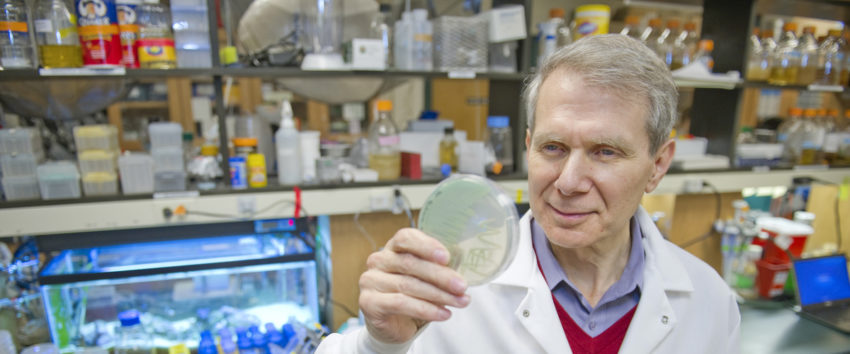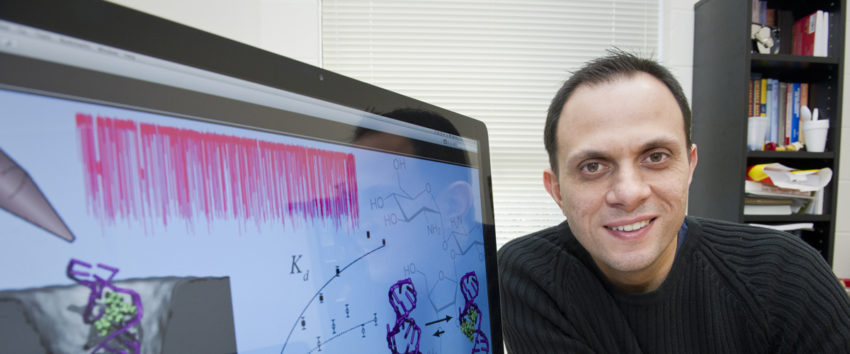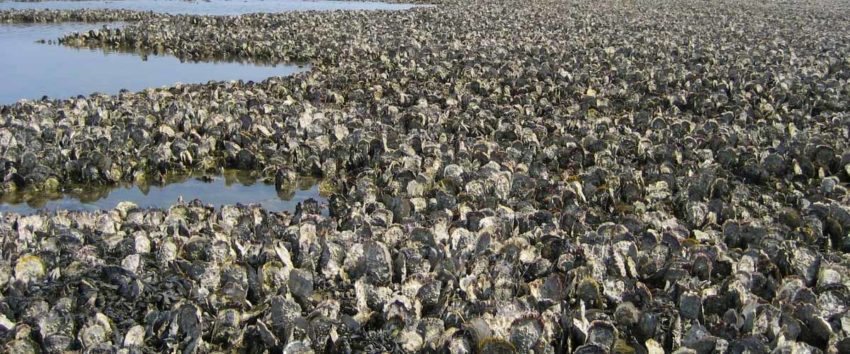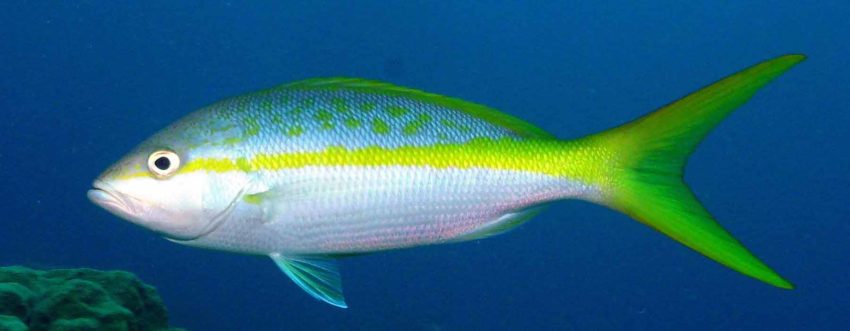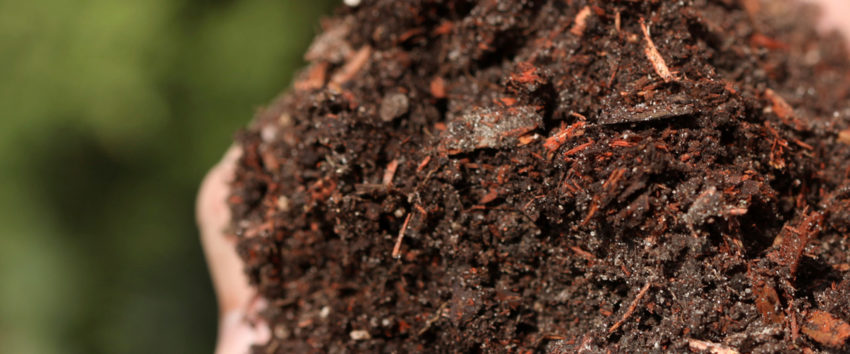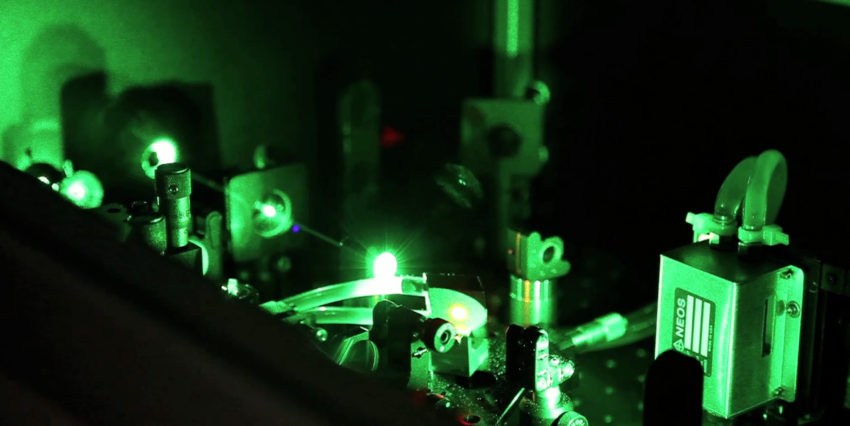News
Physics undergrad given Provost’s Research Award
Congratulations to physics major Trithep Devakul, who was recently named a recipient of a 2013/14 Provost Undergraduate Research Award.
November 20, 2013
Physics undergrad given Provost's Research Award
Congratulations to physics major Trithep Devakul, who was recently named a recipient of a 2013/14 Provost Undergraduate Research Award.
November 20, 2013
300th PSM Program Celebrated at Milestone Event at Library of Congress
Milestone event celebrates over 300 Professional Science Master's programs worldwide.
November 15, 2013
New Research Takes Aim at Heart’s ‘Safe Zone’
Sudden cardiac arrest is the leading cause of death in the industrialized world. However, it’s not well understood and is challenging to both predict and effectively prevent, according to Alain Karma, Arts and Sciences Distinguished Professor in the Department of Physics.
November 15, 2013
Assistant Professor Paul Whitford Receives NSF Career Award
Congratulations to Assistant Professor Paul Whitford who has received an NSF Career Award for $954K.
November 14, 2013
Researchers discover new treatment to cure MRSA infection
University Distinguished Professor of Biology Kim Lewis and his team have published a study that presents a novel approach to treat and eliminate MRSA.
November 13, 2013
Slowing down DNA
A research team led by Meni Wanunu, assistant professor of physics and chemistry and chemical biology, has found that nanopores made of hafnium oxide slow the passage of DNA and are very stable.
November 12, 2013
The stressed-out brain
Clinical studies of adolescents suffering from depression have shown an interesting connection between early life stress and the immune system.
November 08, 2013
No place to hide?
Many researchers at the Marine Science Center study how predator-prey interactions shape coastal ecosystems, and "ecosystem engineer" species play a critical role.
November 05, 2013
Are they venting? A question for recreational anglers
Postdoctoral Researcher, Steven Scyphers, works with the Grabowski Lab at the Marine Science Center and investigates the human side of fisheries management.
November 05, 2013
Digging up some media appearances
It was a busy week for Drs. Geoff Davies and Elham Ghabbour, members of the Humic Acid Research Group.
November 04, 2013
Physics Grad Wins Dept. of Energy Award
Graduated Northeastern physics student Tanmoy Das has won a High Performance Computing Achievement Award.
November 01, 2013
Dr. Tanmoy Das (PhD 2010) Receives an NERSC Award for High Impact Scientific Achievement – Early Career
Dr. Tanmoy Das receives an Early Career award from the Department of Energy's National Energy Research Scientific Computing Center (NERSC).
October 31, 2013
Fighting NTDs Through Crowdfunding
Professor Michael Pollastri is creating a new platform to share data with international researchers focused on neglected tropical diseases.
October 30, 2013

